I graduated from Chicago’s Lane Technical High School, in January of 1950 and went on to the University of Illinois in Champaign-Urbana, in February of 1950. The Korean War broke out in June of 1950.
In America, as recent as only a half century ago, college attendance was relatively a rare happening. As prestigious as Lane was, only ten percent of the graduation class went on to college. It was so rare, and so few young men were involved, that college students were exempt from military service.
So here I was, in America, far away from Korea, the land of my birth, safe from ravages of war. As the early months of the War unfolded, I would read and see the reports in newspapers and on television, and felt the guilty feelings of somehow not doing my share.
The feelings of guilt intensified especially when I would hear about my high school buddies, none of whom were Koreans, dying and sustaining injuries in my Korea. So, toward the end of 1951, I decided to enlist in the armed forces for the sole purpose of going to Korea.
At that time, if you were drafted into military service, you would serve a two year tour of duty. However, if you voluntarily enlisted, the tour of duty was for three years. Because I was exempt from the draft, I had to enlist for a three year hitch.
I had to find a way for a two year hitch because, during a war, at that time, you can serve only one year in a war zone - Korea - and I didn’t want to spend three years away from school for a one year stay in Korea.
I did find a way. There was a provision in the law that allowed a person to request “voluntary induction,” which I did. I qualified as a two-year volunteer, which was perfect for me.
I was to spend the next two years divided as follows: three months in boot camp, three months in special training, three months in combat training, one year in Korea and three months back in the United States, at the Great Lakes Naval Station, which is near my home in Chicago, just biding time to be mustered out.
I had no preference as to which branch of the armed services I would serve in, as long as it was in Korea. At that time, so many Marines were being killed in Korea that there were not enough volunteers to fill the Marine ranks. The Marines were always a volunteer group; they never accepted draftees - except for those three months during the early part of 1952. Thus, I became a Marine.
Now that it’s all done and over with, I would not have it any other way. The training was unbelievably tough, and even after, keeping up with the traditions of the Corps, wherever we went, was always a stress.
Our platoon must have been a pretty good bunch of recruits; we won the battalion marching contest. I do remember our Drill Sergeant picking out about ten people, who were somewhat uncoordinated, telling them that they were sick, that they had to go to the sick bay (hospital) during the marching competition.
We graduated as the honor platoon and we all won our first stripes. We were now private first class, not recruits. Along about this time, I was hearing about regulations that do not allow Marines to go to the country of their origin. What a devastating turn of events.
Again, I searched for a solution - and found it. There was a superceding regulation that permitted a Marine to go to a service station of his choice, based on his class rank in a special training course and that Military Occupational Specialty was absolutely needed in that area. Perhaps this was my incentive for doing my best in the special engineering course that I was enrolled in.
There were seventy people in the class, and I had achieved the third rank. Problem; there were only two positions allocated for the Korean theater of operation. I worried for days in fear of not being one of the two to receive the Korean assignment.
As it turned out, I needn’t have been so worried. I received one of the assignments and the second and last slot went to the last person in class. When I thought about it, what person in his right mind would want to go to a war zone, when there were so many peaceful stations around the world.
We then had three months of combat training, part of which was cold-weather training. This training was necessary because, recently, the Marines had fought in the hot South Pacific during the World War II and they had not fought before in freezing weather as in North Korea. This experience, I still remember today, was the toughest part of the training to Korea.
The ship was very democratically organized. The officers had half of the ship and we enlisted men had the other half. The problem, as I saw it, was that there were about two hundred officers and about three thousand of us. Also, they had the upper half and we had the lower half, much of it below the water line. Oh well, that’s life in the U.S. Marine Corps.
The trip across the Pacific Ocean took about twenty days spanning three Sundays. I volunteered (can’t get away from old habits, I guess) to set up chairs and distribute the Hymnals and the Bibles for the services.
The attendance at the first service, just out of San Diego, was not too well attended. But the second service, about half way cross the big pond, was very well attended; in fact the service was packed. The third and last service, just before arrival at Inchon, was so packed, that a second service was necessary. Whoever said God was not necessary, or was not in the hearts of tough Marines, were sure wrong.
I finally arrived in Korea. Before I could even unpack, I was called into an officer’s office, and asked if I would like to visit my grandmother, in Seoul. Of course, I responded; and before I knew it, I was put on a Jeep with a driver/correspondent and a photographer and was heading to Seoul. Somehow, they found my grandmother’s house and they had me pose with her and my cousins and nephews and nieces.
While in Seoul, one of my cousins, who was a widow, gave me some money and asked me to buy some things for her at the PX. Why not, I reasoned; it was the least I could do for her. However, as I was walking out the PX door, two MPs stopped me and asked where I was going with contrabands. I didn’t have the slightest idea of what they were talking about, after all I had been in Korea only a few days. As far as they were concerned, I was just another Korean civilian wearing illegally obtained American military clothing. Good thing my driver was there to explain.
I had another day to spend in Seoul, so I visited with my old Sunday School teacher, Mr. Sei Woo Noh, who had taken me to public bath houses when I was just a little boy still in Seoul, at a time when my father was in America and I had no male adult to regularly take me to the bath house.
Later that same day, I also visited a good friend from back home, Dick Thomas, with whom I had spent my childhood playing basketball and softball in Chicago. As I was departing, I asked him for one hundred dollars - which was quite a bit of money at that time - and he gave it to me without a question; I will forever be grateful to him for that. We are still lifetime friends, spanning more than half a century.
When I left Seoul, I said a tearful farewell to my grandmother and my relatives. I was scheduled, in a few days, to move north to the DMZ (de-militarized zone). As I was leaving, I gave the hundred dollars to my grandmother. Later on I found out that, with the money that my friend had given me, my grandmother was able to care for her family for three months.
A few days later, at my destination, I was given a copy of the Stars and Stripes, Korea Edition - a newspaper for American servicemen overseas. The headline read that a First Division Marine was home for Christmas. Of course, this was a play on words in that the entire First Marine Division was stationed in Korea.
Upon returning to Seoul, our unit was loaded onto trucks and was headed north. For the first time in my life, when the sergeant in the truck yelled, “lock and load,” I realized that I was in war. I was to spend the next five months on the southern bank of the Im Jin River, patrolling for infiltrators and building bunkers.
It was there that I spent my first Christmas away from home. There were ten of us in the same tent and we tried to make it as comfortable as we possibly could. For Christmas, we cut down a tree from the hillside outside our tent and decorated it with beer cans; it was not bad at all. What was bad was that the radio was on all day long, and what we heard over and over again were “I’ll Be Home for Christmas” and “White Christmas.” We thought we were pretty tough, being Marines and all, but I could see that there weren’t many dry eyes anywhere for days.
The Korean Marines and the U.S. Marines shared the bunker construction responsibilities. The Korean Marines were to dig the holes and the U.S. Marines were to build the upper portions consisting of the lumber and the sand bag work. The problem was that there were no heavy equipment and the digging was done with picks and shovels. Another problem was that in January and February, the ground froze up and was impossible to dig.
Our captain, being an American, became very upset when the Korean Marines were not producing the holes for us to build the bunkers; we were not meeting our quota. So he tells me, who was rushed into being an interpreter (and I have to admit that my Korean was, at best, not very good), to tell the Korean captain that his men were not meeting their quota.
What did I know? I just got to Korea; I had never even met a Korean Marine before, let alone how they operated. So, I told the Korean captain that the holes were not being dug.
Before I realized what as happening, the captain lined up all his men and was beating them with a two by four piece of lumber. As soon as they were knocked down, they would get up again and again, only to be knocked again. I could not bear seeing the beating any longer, so I left. I learned a lesson then; that I would be more prudent, in the future, on how to interpret/convey a message.
I thought the enlisted Korean Marines would be angry with me, but they were not; they adopted me as one of their own. Thereafter, they would even include me, when they had time off and would go into nearby villages to drink Korean liquor and pass the time.
What seemed unfair to me was that, the area we were in was considered a combat zone for us, but was a rest zone for the Korean Marines.
On clear days, we could see across the ImJin River and see the soldiers on the other side; of course, they could see us as well. Regulations were that if we were to receive incoming enemy fire, as I recalled, twenty rounds of mortars for a given month, we would receive “combat pay.”
At the tie, the pay for a private first class was $60/month. In addition, we received $40/month for overseas pay and another $50/month for combat pay. By today’s standard the $100 month to $150/month doesn’t seem much, but it was quite bit compared to the $2/month that my cousin received as a captain in the ROK army.
As soon as our unit received the required number of rounds for the month, to receive our combat pay, our unit commander rotated his units so that another unit would be in place to receive their “combat pay.” As it turned out, there were certain areas, where the river was narrow enough, for the enemy mortars to reach across. Our captain’s reports reflected that he was rotating his men because he did not want any one part of his unit to be in harm’s way more than others.
About April of 1953, there were scuttle buds (Marine’s slang for rumors) that some sort of an armistice agreement was being finalized, that the shooting would soon be over. The rumors became a realty, for me, when I was assigned to the MunSanNi area.
When I arrived at MunSanNi, in May of 1953, most of the Prisoner Receiving Team, composed of American and Korean Marines, had already assembled. The fifty U.S. Marines, selected on the basis of their heroism on the front lines, were selected to serve as the initial greeters, and stretcher bearers, for the returning prisoners of war.
In between preparing the area, to receive the returning prisoners, and training to perform our roles in the actual receiving of the returning repatriates, those of us on the Receiving Team got to know each other well. Except for me, the others had been selected for their heroism in combat; I felt out of place; but they welcomed me.
One thing was obviously clear; none of them felt like they were heroes; they just did what had to be done. I never knew such modesty existed. They never talked about their combat experiences; they came to light only when someone else would talk about them. I didn’t drink much beer before I got to Korea, but that summer, I seemed to have made up for lost time.
Finally, the war was coming to an end after three years, one month and two days of fighting; the date set was July 27, 1953. Within three days, all military personnel, supplies and equipment, on both sides, were to be withdrawn out of the area. Another impossible task.
What actually happened was that, both sides decided to, instead of withdrawing the ammunition, use up the ammunition. Estimates were that, as high as one-third of the entire war casualty was sustained during the last week of the war. What a tragic decision by unthinking men.
Again, I was safe, within the no-fire zone at PanMun-Jom. From this haven, we saw the continuous heavy artillery battled being engaged overhead for several days.
Finally, the day of the beginning of the Big Exchange arrived; it was August 5, 1953, 9:00 AM. The plan was that, every hour, four trucks each seating twenty-five returning prisoners, would roll down from KaeSung to PanMunJom. As part of the four truck convoy, there were also several ambulances carrying the men who were very sick and the lame.
There the lists of the returning prisoners were presented to the U.S. Marine Corps officer, who in turn would hand them to me. As I read their names, they would respond and debark from the trucks, to freedom; some of them had been prisoners since even before the current war.
I could not read Korean very well at that time, but I did the very best that I could. I would read a name, and sure enough, someone would respond and jump off the truck. It got so that I was getting pretty smug, thinking that I was reading pretty well.
As it turned out, the order of the names on the list was the same as the order of seating on the trucks. No matter how I pronounced the name, the next person jumped out. Just because I read the name wrong, they weren’t going to stay in the truck.
As they got off the trucks, some of them cried shamelessly. I was the first sign of freedom they had seen in a long time. I received lots of bone crushing hugs. It was an experience I will never forget.
In between deliveries, those of us in the initial welcoming group, as compared to those who were responsible for the care and the processing, had time to relax. I remember a couple of times. I espied a young Korean Communist soldier/driver, sitting in a jeep. In a mischievous moment, I jumped in next to him and asked my friends to take our picture. I was surprised at the fear he showed.
Later, I was told by a Korean Marine Corps officer that the young man was probably fearful of the reactions of his superiors, that he was getting too friendly with me. I was so young; so unknowing about the stresses that my unthoughtful actions would place on others.
Considering the complexities, and the unpredictability of the North Korean/Chinese Team, the Exchange was completed quite smoothly. A bit of excitement was felt when a captured American general, Major General William Dean was returned. Instead of the usual ambulance, we had prepared a sedan for the General’s transportation to MunSanNi. The North Koreans were fully prepared to exploit this “special treatment for special people.” Our initial assessment was that a high ranking general should not have been running around on the front lines and getting captured. But our respect for the General was restored when the General refused to ride in the sedan and instead rode in the ambulance just like any other returning prisoner.
Another bit of excitement - this one a daily occurrence - was the disrobing by the North Koreans, of their American issued clothing and shoes as they headed north. This was a show of defiance, staged for the benefit of the North Korean news media. They threw their clothing on the road, and there they rotted in the hot summer months of 1953. This happened on a secured stretch of the road and no one was allowed to retrieve the clothing for distribution to the civilian population; what a waste.
Each day, we received about 400 returning prisoners. We did this 6 days a week, for 5 weeks. We received 12,757 returnees, about two-thirds of them ROK, little less than one-third of them Americans, and the rest, U.N. forces.
With the Prisoner Exchange completed, after farewells to other members of the Prisoner Exchange Team members, with whom I had developed a life time bond, we said farewell and each went our separate ways; me to ASCOM City.
Epilogue:
We Koreans must be grateful to the United States for the 54,246 Americans killed and 103,234 wounded during the Korea War, as well as for the 8,177 still missing in action.
We must, however, know the full story, that Korea is the only nation in the world that is still split, split by American decisions; first, for dividing it in the first place, and second, for not allowing General MacArthur to push up the peninsula to the Yalu River when every sign of success were present.
We must also not forget the valiant efforts of president Synggman Rhee who demanded an Armistice Agreement which would (1) insure a unified Korea, and (2) that only willing North Koreans be repatriated to North Korea. The fact that these demands did not materialize, is another reminder that if we Koreans want something for Korea, we must be willing, and be prepared, to fight for what will serve our interests.
We have been depending on others - South Korea on the United States and the North Korea on Russia and China - to get what we need and want. It is now time for us to mature to a full partnership in world affairs. We now have the means, but we still lack the strong mentality of a first class nation.
I’ve been a member of the Republic of Korea Reunification Advisory Council for ten years. In that time, nothing positive has been done. In fact, the Council has been at it for half a century. It is time for the Council to produce, or get out of the way.
If there is to be reunification, it must happen soon. In another generation or two, there will be no one left to remind our younger generations that North Korea is not another country, that we are all a part of the same nation.
If we are to claim the greatness that we are destined for, we must do two things: (1) rid ourselves of our worse characteristics - we are the world’s greatest self promoters and knavers, and (2) learn to work together cooperatively and unselfishingly for common goals.
Joseph Yi came to America in 1940, at the age of 10, and has lived basically in the Chicago Metropolitan Area. Although Mr. Yi’s professional life was in the mainstream society, he has actively participated in the voluntary social services for the Chicago Korean community.
스마터리빙
more [ 건강]
[ 건강]이제 혈관 건강도 챙기자!
[현대해운]우리 눈에 보이지 않기 때문에 혈관 건강을 챙기는 것은 결코 쉽지 않은데요. 여러분은 혈관 건강을 유지하기 위해 어떤 노력을 하시나요?
 [ 건강]
[ 건강]내 몸이 건강해지는 과일궁합
 [ 라이프]
[ 라이프]벌레야 물럿거라! 천연 해충제 만들기
 [ 건강]
[ 건강]혈압 낮추는데 좋은 식품
[현대해운]혈관 건강은 주로 노화가 진행되면서 지켜야 할 문제라고 인식되어 왔습니다. 최근 생활 패턴과 식생활의 변화로 혈관의 노화 진행이 빨라지고
사람·사람들
more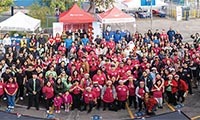
[송년행사 화보] “이웃과 함께 나누고 지인과 함께하니 행복”
KYCC13일 윌튼 플레이스 초등학교에서 열린 ‘한인타운청소년회관(KYCC) 홀리데이 카니발’이 성황리에 막을 내렸다. 올해는 KYCC 창립 …
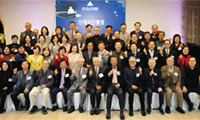
[송년행사 화보] “ ‘손에 손잡고’ 한 해 마무리… 건강과 행복 기원”
전주고·북중남가주 전주고·북중 총동창회(회장 백규종)의 2025년 정기총회 및 송년회가 지난 14일 LA 작가의 집에서 성황리에 열렸다. 이날…
[송년행사 화보] “한 해를 마무리하며… 화기애애…
LA 러너스클럽LA 러너스클럽(회장 김두병)은 13일 작가의 집에서 80여명의 회원과 가족이 참석한 가운데 송년회를 마쳤다. 2007년 창립된…
[송년행사 화보] “웃음과 감사 가득 ‘훈훈’… …
한국학교총연합회미주한국학교총연합회(회장 이영숙)가 주최한 제43회 장기 근속교사 포상 및 송년의 밤 행사가 140여명의 교사들이 참석한 가운데…
[송년행사 화보] “친구야 반갑다… 선배님들 모두…
경남중고경남중·고등학교 남가주 동창회(회장 예해덕)는 지난 6일 송년회를 열고 동문 및 가족 60여 명이 참석한 가운데 끈끈한 우정을 확인했다…
많이 본 기사
- ‘AI 인프라구축 속도전’ 위한 인허가 개편 법안, 하원 통과
- 트럼프, 대마초 규제 완화…헤로인과 같은 1급서 3급으로 하향
- 경찰, ‘통일교 금품수수 의혹’ 전재수 오늘 피의자 소환
- 美·英 10대소년 유가족, 메타 상대 소송… “미성년 성착취 방치”
- 독이 된 박나래 영상..문장 끝 꾹 닫힌 입까지 분석 “리스크 관리 최대”
- 트럼프 “차기 연준 의장 몇주내 발표…3∼4명과 얘기 중”
- 방미 위성락 “진전있었다…정상합의 후속조치 서두르기로”
- 워싱턴DC 대표 공연장 케네디센터 명칭 ‘트럼프-케네디센터’로
- 위기의 트럼프 “내년봄 최대규모 세금… 1
- 에어 프레미아 취항, 기대 컸나
- 노스캐롤라이나주 공항서 商用항공기 추락… “7명 사망”
- 67명 숨진 워싱턴 여객기·軍헬기 충돌에 정부 ‘책임 인정’
- 보건부, 미성년자 성전환 의료 차단 추진… “자금지원 중단”
- 2026년형 기아 쏘렌토, 2025 IIHS충돌 평가 최고 등급(TOP SAFETY PICK+) 획득
- 기아 텔루라이드, 뉴스위크 선정 ‘2026년 가장 기대되는 신차’ 리스트 등재
- 11월 소비자물가 2.7%↑ 선방했지만… “자료부족해 구멍숭숭”
- 尹, 계엄군 장성들에 “미안”…계엄엔… 1
- LA 소파이 스테디엄 8경기 확정
- ‘라도♥’ 에이핑크 윤보미, 손편지로 결혼 발표..9년 열애 결실 “함께하기로”
- 어느덧 20주년.. ‘5남매 가족’ 이동국♥이수진, 세월 잊은 비주얼
- 변정수, 갑상선암→성대결절 고백 “거의 죽음을 경험했다”
- ‘브라운대 총기참사’ 뉴욕 한인학생도 총상
- ‘무려 94.2%’ 안세영 새 역사 썼다, 역대 단일 시즌 ‘女 최고 승률’
- LA산불 여파 ‘심각’ 지역 주민 건강악화
- 워싱턴 일원 소비 확 줄어들었다
- 트럼프, 사이버안보 총괄 NSA국장에 조슈아 러드 지명
- 브라운대 한인학생, 총격참사 극적 생존
- 韓국방부 “美와 핵잠수함 연료공급 협상 2년 내 완료 목표”
- “김혜성만큼은 받지 않을까” 송성문 포스팅 D-3, ML 스카우트도 낙관했다
- 미일, ‘日 5천500억 달러 대미… 1
- 내년 봄 새 앨범→대규모 월드투어..방탄소년단, 완전체 컴백 앞두고 글로벌 음악시장 ‘놀라운 영향력’
- “금리 대폭인하 신봉자”…트럼프가 곧 낙점할 연준 차기의장 누구
- 한국연극배우협회 “윤석화 별세 사실 아냐”…보도자료 정정·사과
- “보이스피싱 이렇게 당한다”
- “왜 한국 자산 미국으로 옮겨야 하나… 1
- 경찰, 통일교 자금줄 쥔 한학자 前비서실장 13시간 조사
- 美, ‘네타냐후 체포영장·조사’ 국제형사재판소 판사 제재
- “북VA 주택시장 가격 급등 없다”
- 크리스마스 연휴 겨울폭풍 남가주 연안 2~4인치 비
- 뱅크오브호프, 규모도 1위·봉사활동도 ‘으뜸’
- 백악관, ‘인플레둔화’ 지표에 반색… “바이든 위기와 극명 대비”
- 하원, ‘트럼프 베네수엘라 군사작전 저지 결의’ 무산
- “판공비 1만달러 전액 반환하겠다” 3
- [윌셔에서] 잠시 멈추어 서서
- [로터리] 지멘스가 만드는 미래 동네
- 중고차 주행거리 조작 ‘주의보’
- 구글-메타, 엔비디아 독주 막으려 ‘오월동주’…AI칩 SW개발 협력
- 거래 더디지만 균형 회복… 리얼터닷컴 내년 주택시장 전망
- 엡스타인 ‘공범’ 옛 연인 “공정한 재판 못받았다” 석방요구 청원
- [수잔 최 변호사의 LIFE &] AI 시대 편리함에 안주하지 말자
1/5지식톡

-
 ☝️해외에서도 가능한 한국어 선생님…
0
☝️해외에서도 가능한 한국어 선생님…
0이 영상 하나면 충분합니다!♥️상담신청문의♥️☝️ 문의 폭주로 '선착순 상담'만 진행합니다.☎️ : 02-6213-9094✨카카오톡ID : @GOODEDU77 (@골뱅이 꼭 붙여주셔야합니다…
-
 테슬라 자동차 시트커버 장착
0
테슬라 자동차 시트커버 장착
0테슬라 시트커버, 사놓고 아직 못 씌우셨죠?장착이 생각보다 쉽지 않습니다.20년 경력 전문가에게 맡기세요 — 깔끔하고 딱 맞게 장착해드립니다!장착비용:앞좌석: $40뒷좌석: $60앞·뒷좌석 …
-
 식당용 부탄가스
0
식당용 부탄가스
0식당용 부탄가스 홀세일 합니다 로스앤젤레스 다운타운 픽업 가능 안녕 하세요?강아지 & 고양이 모든 애완동물 / 반려동물 식품 & 모든 애완동물/반려동물 관련 제품들 전문적으로 홀세일/취급하는 회사 입니다 100% …
-
 ACSL 국제 컴퓨터 과학 대회, …
0
ACSL 국제 컴퓨터 과학 대회, …
0웹사이트 : www.eduspot.co.kr 카카오톡 상담하기 : https://pf.kakao.com/_BEQWxb블로그 : https://blog.naver.com/eduspotmain안녕하세요, 에듀스팟입니다…
-
 바디프렌드 안마의자 창고 리퍼브 세…
0
바디프렌드 안마의자 창고 리퍼브 세…
0거의 새제품급 리퍼브 안마의자 대방출 한다고 합니다!8월 23일(토)…24일(일) 단 이틀!특가 판매가Famille: $500 ~ $1,000Falcon: $1,500 ~ $2,500픽업 & 배송직접 픽업 가능LA…
케이타운 1번가
오피니언
 수잔 최 한미가정상담소 이사장 가정법 전문 변호사
수잔 최 한미가정상담소 이사장 가정법 전문 변호사 [수잔 최 변호사의 LIFE &] AI 시대 편리함에 안주하지 말자
 김도년 성균관대 건축학과 교수 스마트도시·건축학회장
김도년 성균관대 건축학과 교수 스마트도시·건축학회장 [로터리] 지멘스가 만드는 미래 동네

[여명] 금붕어를 키우는 오지선다형 수능
 허경옥 수필가
허경옥 수필가 [윌셔에서] 잠시 멈추어 서서
 양홍주 / 한국일보 논설위원
양홍주 / 한국일보 논설위원[지평선] 판다 없는 일본

[왈가 왈부] 쿠팡 김범석 “글로벌 CEO라 불출석”… ‘맹탕’ 청문회 불보듯
 정숙희 논설위원
정숙희 논설위원칠레에서 영국까지, 27년을 걷다
 마크 A. 시쎈 / 워싱턴포스트 칼럼니스트
마크 A. 시쎈 / 워싱턴포스트 칼럼니스트 [마크 A. 시쎈 칼럼] MAGA와 ‘힘에 바탕한 외교정책’
 김동찬 시민참여센터 대표
김동찬 시민참여센터 대표 [미국은 지금] 위기의 시대, 사회안전망은 최후의 방어선이다
1/3지사별 뉴스

‘브라운대 총기참사’ 뉴욕 한인학생도 총상
▶총상 입은 상황서도 동료학생 의식 잃지않도록 도와 ▶부친도 동문 “우리 가족에게 고통스러운 일”지난 13일 발생한 브라운대학교 총기난사(본보…
뉴욕주 안락사 합법화 초읽기 호쿨, “안전장치 마련되면 서명”

워싱턴 일원 소비 확 줄어들었다
올해 8월 워싱턴DC에 범죄와의 전쟁을 명분으로 주방위군이 본격적으로 배치된 가운데, 이 시기 이후부터 버지니아와 메릴랜드, DC 등 워싱턴 …
“북VA 주택시장 가격 급등 없다”

베이지역 스포츠팀, SF 한인회에 후원금
샌프란시스코 베이지역 한인회(회장 김한일)는 한인 메이저리거 이정후 선수의 소속팀인 샌프란시스코 자이언츠(San Francisco Giants…
불자커뮤니티 20일 청소년발표회및 송년회

오늘 하루 이 창 열지 않음 닫기 




























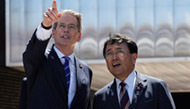




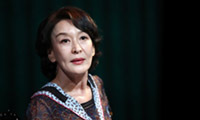
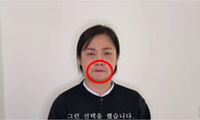

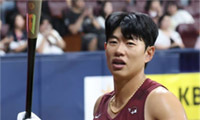














.png)


댓글 안에 당신의 성숙함도 담아 주세요.
'오늘의 한마디'는 기사에 대하여 자신의 생각을 말하고 남의 생각을 들으며 서로 다양한 의견을 나누는 공간입니다. 그러나 간혹 불건전한 내용을 올리시는 분들이 계셔서 건전한 인터넷문화 정착을 위해 아래와 같은 운영원칙을 적용합니다.
자체 모니터링을 통해 아래에 해당하는 내용이 포함된 댓글이 발견되면 예고없이 삭제 조치를 하겠습니다.
불건전한 댓글을 올리거나, 이름에 비속어 및 상대방의 불쾌감을 주는 단어를 사용, 유명인 또는 특정 일반인을 사칭하는 경우 이용에 대한 차단 제재를 받을 수 있습니다. 차단될 경우, 일주일간 댓글을 달수 없게 됩니다.
명예훼손, 개인정보 유출, 욕설 등 법률에 위반되는 댓글은 관계 법령에 의거 민형사상 처벌을 받을 수 있으니 이용에 주의를 부탁드립니다.
Close
x